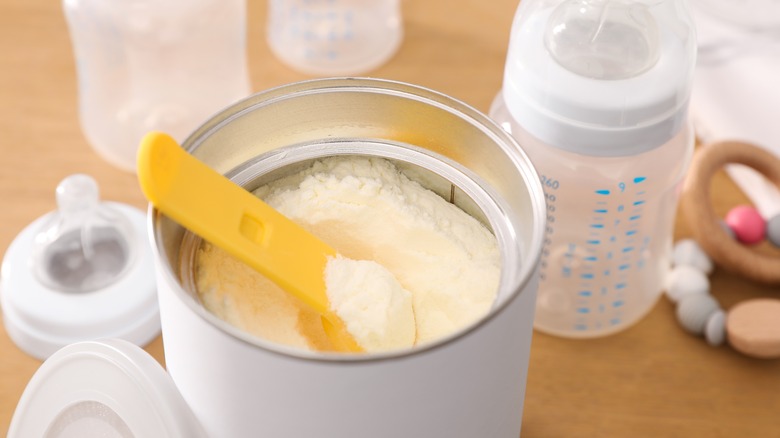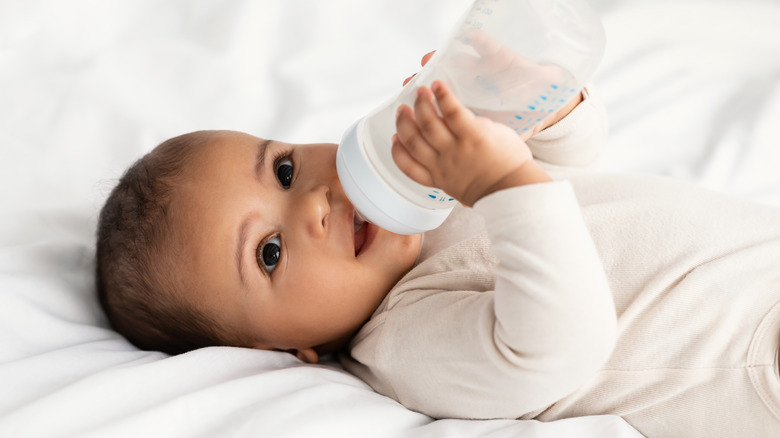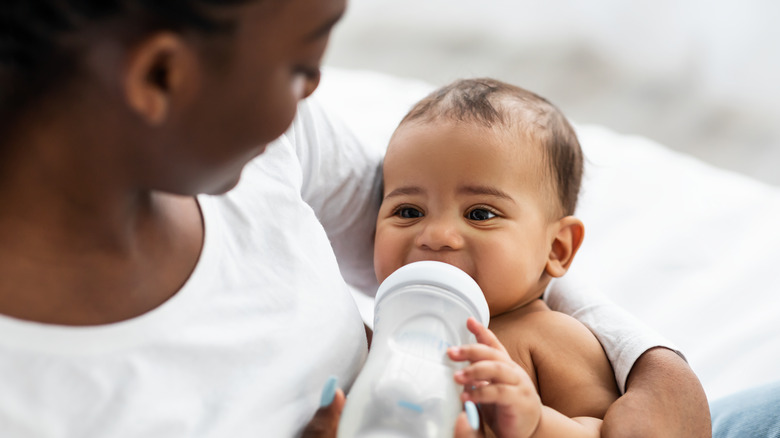Is Homemade Formula Safe? NJ Poison Control's Dr. Diane Calello Issues Warnings - Exclusive
The recent baby formula shortage has been challenging, if not outright frightening, for parents who bottle-feed their babies. Parents choose baby formula when nursing is not an option because they know formula is specifically designed to be safe and healthful for babies. Moreover, it's usually easy to obtain and use, and some families like how it allows both parents to participate equally in feeding.
But the current shortage, caused by the emergency closure of a major manufacturing plant owned by Abbot Laboratories, which produces nearly half of the baby formula sold in the U.S. (according to The Guardian), has upended families' routines. Parents shopping for formula are encountering empty shelves, and some only find formula after multiple attempts at different shops. This had led desperate parents to search for alternatives to commercial formula, and in response to this need, recipes for homemade baby formula and other substitutes have proliferated online.
Most of these contain standard pantry ingredients and look wholesome — but as Dr. Diane Calello, executive and medical director of the New Jersey Poison Control Center at Rutgers New Jersey Medical School, warns, appearances can be deceiving. Here's what you need to know about homemade formula and how it can affect your baby's health.
Malnutrition is a huge risk with homemade formula
Babies have different nutritional needs and digestive capacities than older children and adults, which is why we don't feed newborns burgers and fries. This is also why it's not safe to feed babies homemade formula substitutes, even if their ingredients are safe and nutritious for older kids and adults, said Dr. Diane Calello in an exclusive interview with Health Digest. "Formula substitutes don't contain essential vitamins and micronutrients," she explained. "Even if the substance itself is healthy, it won't have adequate amounts of things like calcium, iodine, magnesium, and others that are essential to infant brain development."
Commercial formula, Dr. Calello said, is designed specifically to address babies' intense nutritional needs in their early months, when they are exceptionally vulnerable to the effects of malnutrition. "There are many considerations beyond just calories which make commercial infant formula an appropriate source of nutrition," she said. "Homemade formula may lack adequate protein or other essential nutrients." In short, what may be a healthful and nutritious drink for you may be harmful junk food for your baby.
Babies require a specific concentration of nutrients to thrive
Unless you're a serious endurance athlete, you probably don't give much thought to your body's balance of salt and water — if you're healthy, your normal diet keeps everything in check. (In rare cases, however, too much water in the bloodstream can result in hyponatremia, in which the dilution causes blood sodium levels to fall, resulting in confusion, seizures, and muscle spasms.)
But babies' systems are far more sensitive, and the wrong diet can wreak havoc on them, with sometimes deadly consequences. "If the formula is either too concentrated or too dilute, the delicate salt and water balance in the infant's body can be disrupted, causing brain and other organ damage," Dr. Diane Calello warned.
This means watering down your dwindling formula supply isn't a good option, along with other DIY formula hacks. But Dr. Callelo noted that parents shouldn't necessarily give up the search for their brand of formula. "Formula may be available in some retail stores and online," she suggested. She also reiterated that a discussion with the child's pediatrician should be a crucial early step — they will also have recommendations for sourcing formula or for an acceptable alternative that's safer than the homemade recipes floating around social media.
For more information on baby formula and safe substitutes, visit the New Jersey Poison Information and Education System's website in English or Spanish.



